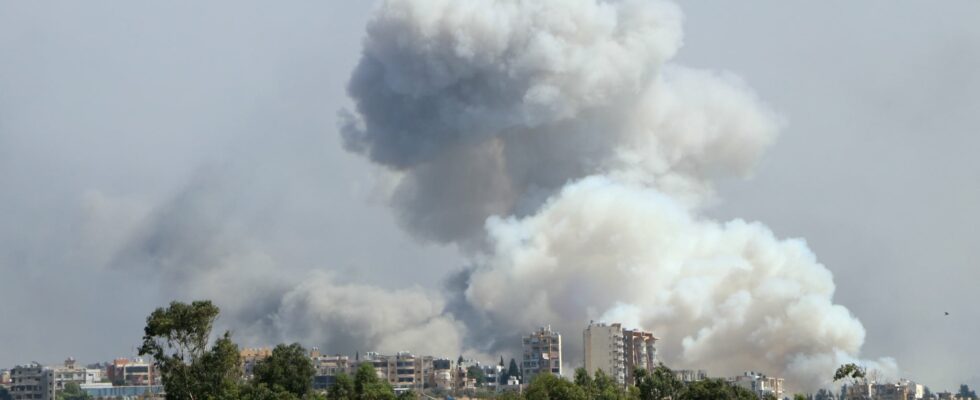Like “Beirut” or “Vietnam”, the word “Gaza” is now loaded with a meaning that symbolises horror. Reflecting the fears of many observers, UN Secretary-General Antonio Guterres expressed concern on Sunday 22 September about the risk that Lebanon could become “another Gaza”.
At a time when Israeli bombings are intensifying against Hezbollah targets in the south and east of the country, against a backdrop of calls for the population to evacuate the areas concerned, the similarities with the start of operations in the Gaza Strip – after the massacres perpetrated by Hamas on October 7 – are disturbing. And cause fears of the worst. Already, the strikes of September 23 have left more than 550 dead (including 50 children) in a single day, “the vast majority unarmed people”, according to the Lebanese government, and more than 1,800 injured.
Terrifying human toll
It remains to be hoped that the Hebrew State, eighteen years after the last bloody war against the country of the Cedars, will not launch an offensive in the north as disastrous as in the southwest to eradicate another enemy that has sworn its downfall: the pro-Iranian Lebanese militia.
Because beyond the prospect of repeating the nightmare – a frightening human toll demonstrating a total disregard for the fate of civilians – “another Gaza” in Lebanon would mean a new endless war, for lack of diplomatic perspective, in front of a powerless international community. Such a scenario, which raises the threat of a regional conflagration, would risk sweeping away an entire country already wounded by a catastrophic economic and political situation.
Officially, the Israeli army is seeking to weaken Hezbollah, which opened a “support front” in Gaza on October 8, by striking its hierarchy and its ammunition depots. The Israeli authorities have notably promised the populations of the north of the country, displaced since the start of hostilities, that they could return home.
The operation could also serve to divert attention from Gaza where, despite more than 40,000 deaths according to Hamas, Tsahal has not managed to completely destroy the terrorist movement, armed by Iran, nor to repatriate the hundred hostages, alive or dead, still being held there.
Given his progress in the polls since the blows dealt to Hezbollah have multiplied, Israeli Prime Minister Benjamin Netanyahu could feel encouraged in this “new phase”, which consists of moving “the center of gravity” of the war “towards the north”. The fact remains that the Shiite organization, even weakened by two waves of explosions of beepers and walkie-talkies, and the elimination of several of its high-ranking officers, is emerging as a much more formidable adversary than Hamas.
